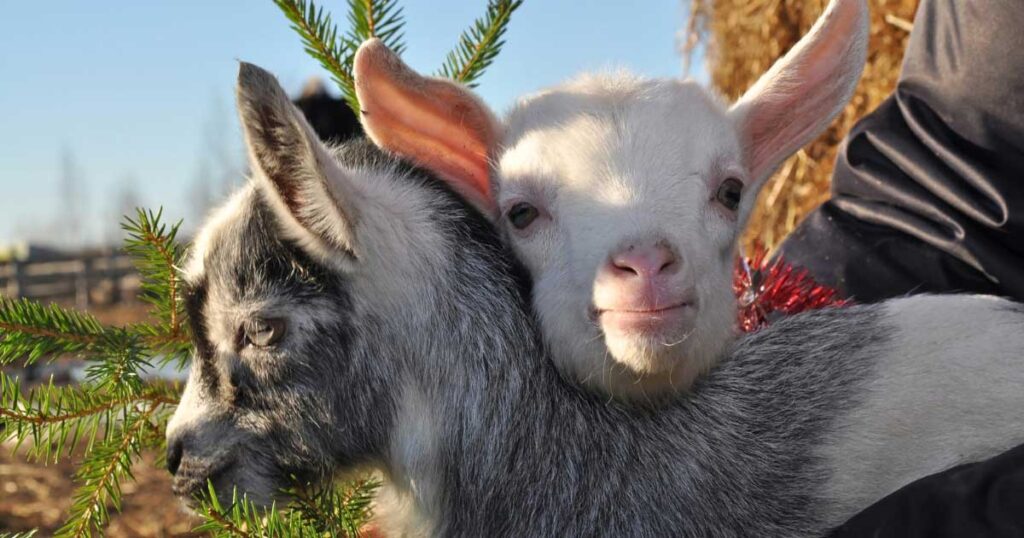Goat farming has become an increasingly popular venture for farmers around the world. With its numerous benefits and relatively low investment, goat farming has proven to be a profitable and sustainable business. However, to ensure success in this industry, there are several essential factors that every goat farmer must consider. In this article, we will explore the key elements of successful goat farming and provide valuable insights for aspiring goat farmers.

Choosing the Right Breed
The first step to successful goat farming is choosing the right breed. Different goat breeds have different characteristics and are suitable for different purposes such as meat, milk or fiber production. It is very important to research and understand the specific requirements and characteristics of each breed before making a decision. Consider factors such as adaptability to the local climate, disease resistance and market demand and choose a high-yielding breed. Popular among these are Desi Boal, Black Bengal, Jamnapari, Siri, Botar, Kashmiri goats.
Provide adequate shelter and fencing
Goats need adequate shelter to protect them from harsh weather and predators. A well-built and ventilated barn or shed is essential for their well-being. Additionally, strong fencing is necessary to prevent goats from roaming and keep predators away. Regular maintenance of shelters and fencing is very important to ensure the safety of goats. In addition, the following points should be kept in mind for housing
- Create a clean, dry, well-ventilated goat house.
- Provide adequate open space, shade and water.
- Clean the house regularly to prevent disease.
Ensuring Nutritious Feed and Water
Proper nutrition is essential for the health and productivity of your goats. A balanced diet that includes high-quality forage, grains, and supplements is essential. Understanding the nutritional needs of goats at different stages of life, including pregnant and lactating goats, is essential. In addition, access to clean and pure water is crucial for their well-being.
Health Management and Veterinary Alert
Maintaining goat health is crucial for successful goat farming. Regular vaccinations, deworming, and preventive measures against common diseases are essential. It is advisable to establish a good relationship with a local veterinarian who specializes in goat health. Regular check-ups and timely medical interventions can prevent the spread of diseases and ensure the overall well-being of the herd.
Goat Farming Breeding
Successful goat farming involves effective breeding and reproductive management. Selecting healthy and genetically superior breeding stock is essential to improve the overall quality of the herd. Proper breeding techniques, such as controlled mating and artificial insemination, should be employed to achieve desired traits and maximize productivity. Pregnant goats should be provided with adequate care, including proper nutrition and monitoring for any complications during pregnancy.
Marketing and Business Strategy
To ensure profitability in goat farming, it is very important to have a well-defined marketing and business strategy. Understanding the market demand for goat products such as meat, milk and fiber is essential. Building a strong network of buyers and suppliers can help establish a successful goat farming business. Additionally, exploring value-added products and niche markets can provide opportunities for high profits.
Goat farming is a self-sufficient, promising profession. Goat farming is a profitable and easy profession that can help you become self-sufficient. Some reasons why goat farming is profitable
- Low cost: Goat farming does not require much expenditure.
- Easy: Goats are easy to care for and do not require much skill.
- Fast breeding: Goats reproduce quickly and give birth to multiple babies a year.
- Multiple income streams: Income can be generated by selling goat milk, meat, skin and hair.
- Low risk: Goats are disease resistant and there are not many risks in raising them.
Before starting goat farming
- Training: You should receive training on goat farming.
- Market: You should know about the market for selling goat milk, meat, skin and hair.
- Breed selection: You should select a better breed of goat according to the environment and market needs.
- Housing: Clean, dry and well-ventilated housing should be made for the goats.
- Food: Goats should be provided with balanced food and adequate water.
- Health: Goats should be vaccinated regularly and preventive measures should be taken.
Examples of becoming self-reliant from goat farming
Zahir Sheikh of Faridpur: Starting with 4 goats, he currently has 50 goats on his farm.
Chougacha of Jessore: Many families here have become self-reliant by raising Black Bengal goats.
Nurbanu from Thakurgaon: Starting with 5 goats, he now has 35 goats on his farm.
Mofizul: Mofizul from Satkhira has become self-sufficient by raising Black Bengal goats.
Government Assistance
- Department of Livestock: Provides training, incentives and loans to goat farmers.
- Private Institutions: Various private institutions provide training and loans to goat farmers.
In conclusion, goat farming is a profitable and easy profession that can help you become self-sufficient. Successful goat farming requires a combination of knowledge, dedication and careful planning. Careful planning, attention to detail and a thorough understanding of the industry are required. By choosing the right breed, providing adequate shelter and nutrition, ensuring health management, implementing effective breeding techniques and developing a solid marketing strategy, aspiring goat farmers can set themselves up for success. With the right knowledge and dedication, goat farming can be a rewarding and profitable venture.
*Note: This article is for informational purposes only. It is advisable to consult experts and conduct thorough research before starting a goat farming business.
